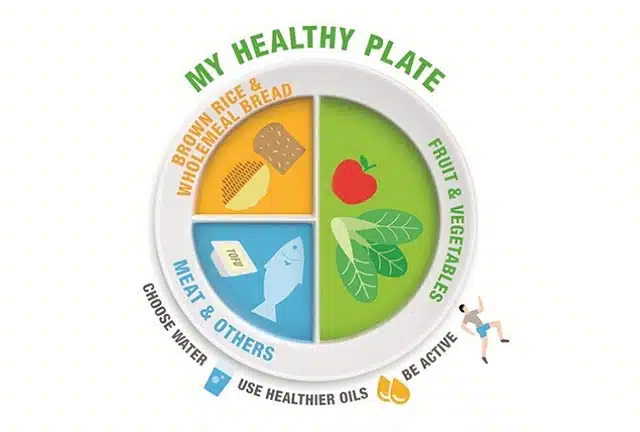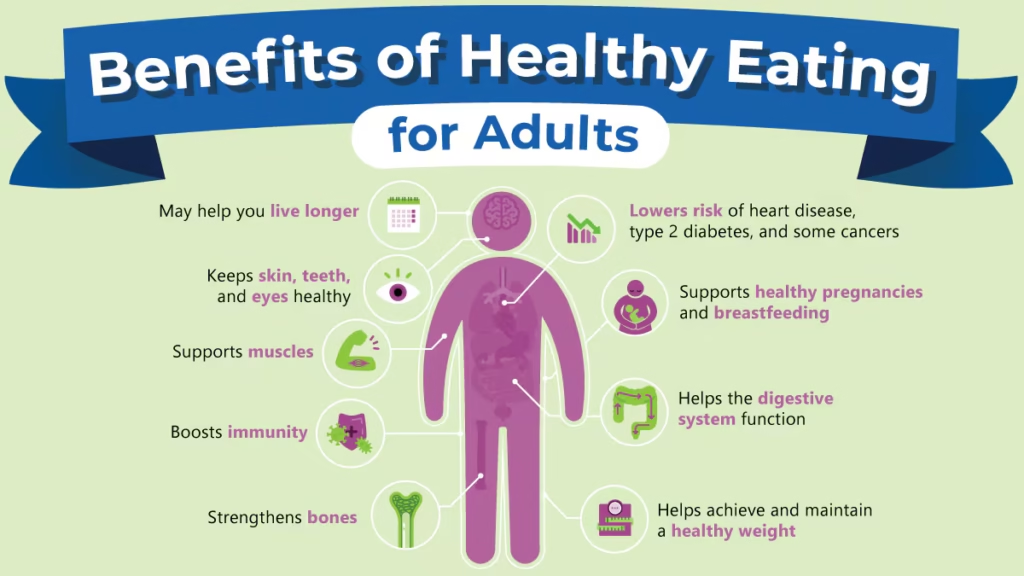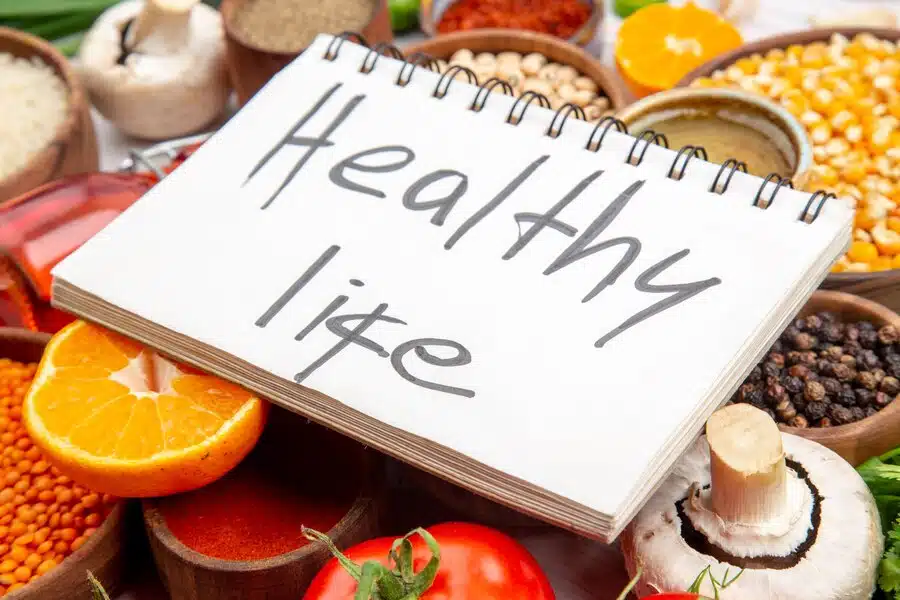A balanced diet is essential for maintaining optimal health and well-being. It provides the body with the necessary nutrients to function effectively, supports growth and development, and helps prevent chronic diseases. In this article, we will explore the various health benefits of a balanced diet, its essential components, and how you can easily incorporate it into your daily life.
What is a Balanced Diet?

A balanced diet consists of a variety of foods in the right proportions, ensuring that you receive all the essential nutrients your body needs. This includes carbohydrates, proteins, fats, vitamins, minerals, and fiber. A well-rounded diet not only promotes physical health but also contributes to mental and emotional well-being.
Health Benefits of a Balanced Diet
- Weight Management: A balanced diet helps maintain a healthy weight by providing the right amount of calories and nutrients without excess. This balance prevents overeating and supports metabolic health.
- Reduced Risk of Chronic Diseases: Consuming a variety of nutrient-rich foods lowers the risk of developing chronic conditions such as heart disease, type 2 diabetes, hypertension, and certain cancers. For instance, diets high in fruits, vegetables, whole grains, and healthy fats are associated with better heart health.
- Enhanced Energy Levels: Proper nutrition fuels your body with energy. A balanced intake of carbohydrates from whole grains and fruits ensures sustained energy throughout the day, improving productivity and reducing fatigue.
- Improved Mental Health: Nutrient-dense foods support brain function and mood regulation. Diets rich in omega-3 fatty acids (found in fish) and antioxidants (from fruits and vegetables) can help reduce symptoms of depression and anxiety.
- Stronger Immune System: A balanced diet provides essential vitamins and minerals that boost your immune system. Nutrients like vitamin C (found in citrus fruits) and zinc (found in nuts) play crucial roles in enhancing immune response.
- Better Digestive Health: High-fiber foods such as whole grains, legumes, fruits, and vegetables promote healthy digestion by preventing constipation and supporting gut microbiota diversity.
- Healthy Skin and Hair: A diet rich in vitamins A, C, E, and healthy fats supports skin health and hair growth. Foods like nuts, seeds, avocados, and leafy greens can enhance your complexion and strengthen hair.
- Improved Bone Health: Consuming adequate calcium (from dairy products or fortified alternatives) along with vitamin D (from sunlight or fatty fish) is vital for maintaining strong bones and preventing osteoporosis.
Essential Components of a Balanced Diet

To achieve a balanced diet, focus on incorporating the following components:
- Carbohydrates: Should make up about 45-65% of your daily caloric intake. Opt for whole grains like brown rice, quinoa, oats, and plenty of fruits and vegetables.
- Proteins: Essential for muscle repair and growth; include lean meats, poultry, fish, eggs, legumes, nuts, and seeds in your meals.
- Fats: Healthy fats should account for 20-35% of your diet. Choose sources like avocados, olive oil, nuts, and fatty fish while limiting saturated fats.
- Vitamins and Minerals: Ensure a variety of colorful fruits and vegetables to meet your micronutrient needs.
- Fiber: Aim for at least 25 grams per day from whole grains, fruits, vegetables, legumes, and nuts to support digestive health.
- Hydration: Drink plenty of water throughout the day to maintain hydration levels.
Also Read : Health Insurance Policy Demystified: A Guide To Getting The Most Out Of Your Plan
Conclusion
Adopting a balanced diet is one of the most effective ways to enhance your overall health. By focusing on nutrient-dense foods from all food groups in appropriate portions, you can enjoy numerous health benefits that promote longevity and vitality. Remember that making gradual changes to your eating habits can lead to lasting improvements in your well-being.
FAQs
1. What constitutes a balanced diet?
- A balanced diet includes a variety of foods from all food groups—carbohydrates, proteins, fats, vitamins, minerals, and fiber—in appropriate proportions.
2. How can I start eating a balanced diet?
- Begin by incorporating more whole foods like fruits, vegetables, whole grains, lean proteins, and healthy fats into your meals while reducing processed foods.
3. How does a balanced diet affect mental health?
- Nutrient-rich foods support brain function and mood regulation; diets high in omega-3 fatty acids and antioxidants are linked to lower rates of depression.
4. Can I lose weight by following a balanced diet?
- Yes! A balanced diet helps manage weight by providing necessary nutrients without excess calories while promoting healthy eating habits.
5. What are some easy ways to incorporate more fruits and vegetables into my diet?
- Add them to smoothies, salads, stir-fries or snack on them raw with dips like hummus or yogurt.
6. How much water should I drink daily?
- Aim for at least 8 cups (64 ounces) per day; however, individual needs may vary based on activity level and climate.
7. Are there specific foods I should avoid for better health?
- Limit processed foods high in added sugars, unhealthy fats (trans fats), salt (sodium), and artificial additives.
8. How does fiber benefit my digestive system?
- Fiber promotes regular bowel movements by adding bulk to stool; it also supports gut health by feeding beneficial gut bacteria.
9. Is it necessary to take vitamin supplements if I eat a balanced diet?
- Generally not; if you consume a wide variety of nutrient-dense foods regularly, you should be able to meet your nutritional needs without supplements.
10. How can I ensure my children eat a balanced diet?
- Encourage them to try various foods from all food groups while making mealtime enjoyable; involve them in meal planning or cooking to foster healthy habits early on.





